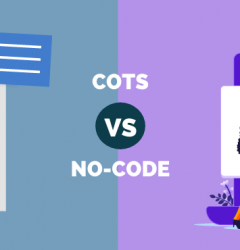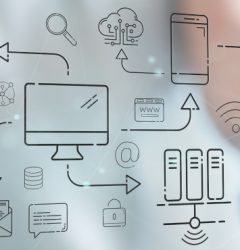
This article was first published on Readwrite.
For the new generation of workers just entering the workforce (who we fondly call Gen Z), it’s about meaningful jobs and building an impactful career than run-of-the-mill stuff.
In the aftermath of the pandemic, people are reflecting on what they want from their jobs and growth trajectory. Gen Z, in particular, is placing more importance on workplace flexibility. “Work-life balance” has become the ultimate selling point to attract, motivate, and keep early-career workers. In addition, these young employees desire cutting-edge technology that will enable them to remain as productive, effective, and connected as possible.
The Equation between Gen Z and Technology
Gen Z is the first generation who grew up in a digital age. Therefore, they are accustomed to connectivity and technology. Early exposure to devices from millennial parents is thought to have resulted in them having their smartphones by the age of 12. Global Web Index’s survey indicates that 98% of Generation Z worldwide own smartphones.
At least 8 hours a day is how 74% of Gen Z spend their free time online. They are available on various gadgets, including laptops and tablets. Their exposure to digital media affects how people get information and form opinions. Advantageously, these can serve as platforms for creative expression, inquiry, and learning.
They are more knowledgeable about the technical aspects of technology now that they have been exposed to it. Coding has already been incorporated into the middle school curricula in nations including the United States, Australia, and Israel. Teaching coding to young minds can facilitate adoption and provide them the ability to approach challenges logically and creatively. They can use this expertise not just in programming but in a variety of other careers.
However, due to a lack of mentors and modernized technology, this has not yet been appropriately implemented in other nations. But now that no-code platforms are available, kids will find it simple to start creating their no-code programs, websites, or apps. These resources will make visual programming as simple as dragging and dropping for them. Although there is some code, the learning curve is simple and can be quickly picked up on sites like Youtube, Twitter, Discord, etc.
Also Read: Decoding No-Code and its Ability to Address Skill Shortage in IT
No-Code and Gen Z – The perfect match
Maintaining employee engagement and preventing burnout is more critical than ever in the face of the “Great Resignation,” which saw four million Americans quit their jobs in July alone. Giving employees the ability to automate away the most tedious parts of their days is the best approach to handle this.
Gen Z is accustomed to using technology to solve problems because they were raised in an era of Google, YouTube how-to videos, and drag-and-drop website builders. There is no reason why this should be any different in the workplace. Fortunately, no-code is the DIY technology this generation has been waiting for.
No-code platforms have become a golden goose for Gen Z, who have limited access to coding education. A generation of young, “not so obsessed with coding” personnel is being given unprecedented flexibility, thanks to no-code platforms. They can build team-specific applications without much dependency on IT.
No-code is not limited to apps and websites but can enable workflow automation for mundane tasks. As a result, flexibility-loving young employees can save many hours on admin tasks and involve themselves in other high-level analyses and processes.
Of course, no-code tools require deductive reasoning that is inherent to coding. For example, you must be able to create pivot tables or comprehend what machine learning capability is and its potential applications.
The critical thing to remember is that no-code tools are practical because they are simpler to use and appeal to a younger generation familiar with the reasoning these platforms need to operate. And no-just for the younger generation no-code helps traditional developers in many ways by enabling faster development.
Today’s students view their computers and mobile gadgets as more than merely consuming screens they can activate. Instead, they use them as tools of self-expression, research, and analysis.
Also Read: Business Process Automation – The Key to stopping the Great Resignation
Gen Z, No-Code, and Creator Economy
In the creator economy, a person or a group creates visual material or a tangible good and uploads it on a platform. It might be a YouTube video, a handmade necklace sold on Etsy, or even a carefully cropped Instagram photo. It can generate income if someone interacts with it or sees it. Selling, sponsorships, and subscriptions for unique content are ways they can make money upfront.
It’s a tailor-made model for Gen Z for running independent businesses.
No-code is now a tool for creators and young entrepreneurs, with Web3 enabling the decentralization of content delivery. Platforms that can facilitate the production, distribution, monetization, and business management of Gen Z are indispensable for the creator economy to expand. No-code development allows more individuals to become creators and gives creators control over how their work is distributed.
No-code platforms give creators access to other key technologies like AI or blockchain, which can significantly benefit their solopreneur ship. Additionally, they can now create NFT collections consistent with their brand.
Given that most young creators are presumably not tech-savvy, no-code is an ideal tool for the creator economy. Only a tiny fraction of people can create apps or websites from scratch; it typically takes them years to learn and even longer to complete. For a variety of reasons, no-code can give a big push to the middle-class creator economy.

Conclusion
Raising the bar is a crucial aspect of progress in many ways. For example, the standard for data utilization in the workplace, in business, and entrepreneurship is being raised by Gen Z. They are more adept than ever at combining multiple standalone services and integrating them into seamless user interfaces for their clients, readers, and users.
The No-Code Generation can close the productivity gap in the global economy, improving our lives and saving everyone’s time in the process.
Login
Please login to comment
0 Comments
Oldest















